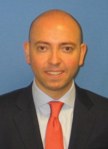
Conflict of Interest is Of Interest to Senate Panel Members “just learning about” industry-rampant Payment For Order Flow Schemes . Market Structure To Be Re-Structured?
Excerpts below courtesy of The Wall Street Letter’s on the spot coverage of the U.S. Senate investigation of Wall Street’s affection for high-frequency trading aka HFT, and with specific focus on order routing and execution practices, particularly with regard to kick-back inspired payment for order flow schemes, “maker-taker” rebate schemes and likely conflict-of-interest issues within the context of brokers such as Charles Schwab and TD Ameritrade (among others) failing to ensure so-called “best execution,” a role that necessarily precludes receiving payment for directing customer orders to any counter-party other than the one offering the best available price for that sized order at that point in time.
Here’s the WSL story as of 8 pm EST on the first day of testimony from members of the securities industry; no surprise to note certain executives take the ‘walk backwards’ and no longer defending the practices that have enriched their business models:
Market participants commenting in front of Senate’s Permanent Subcommittee on Investigations hearing into ‘Conflicts of Interest, Investor Loss of Confidence, and High Speed Trading in U.S. Stock Markets’ noted that the SEC needs to re-examine or dismiss the maker taker rule and subsequent rebates as they’ve harmed consumer confidence and efforts to provide best execution.
Tom Farley, president of NYSE, noted to Senators Carl Levin, John McCain, and Ron Johnson that the maker taker model has led to a proliferation of sell-side broker dealers executing orders on exchanges that are offering induced rebates to create liquidity, rather than sending orders that offer the best execution. Continue reading


